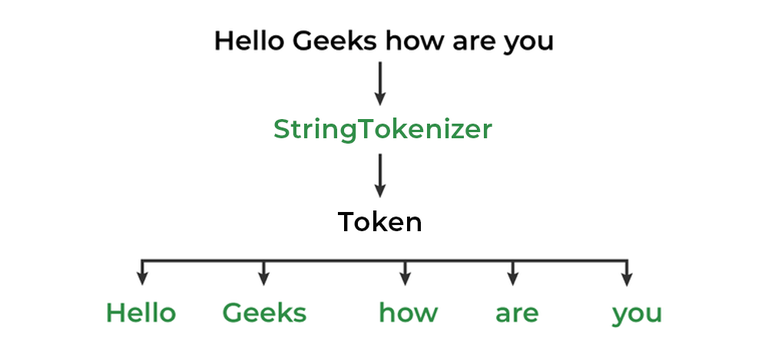Exploring the Advantages of Immutable Strings in Modern Programs Paradigms
In the realm of contemporary programs standards, the principle of unalterable strings stands as a cornerstone of robust software growth. By embracing unalterable strings, designers can guarantee enhanced data stability, enhanced thread safety and security, streamlined debugging processes, enhanced security procedures, and effective performance optimization.
Improved Information Stability

By avoiding the modification of string objects, immutability removes the danger of unintended changes to the information they hold. This not just enhances the security of the details but additionally improves the dependability of the code that depends on these strings.
Immutability also supports safer multithreading environments, as concurrent access to unalterable strings does not pose the threat of data corruption with simultaneous modifications. This residential property simplifies the procedure of taking care of strings in parallel shows situations.
Essentially, immutability acts as a safety guard around the information saved within strings, boosting their stability by ensuring that when defined, their values stay the same throughout the program's implementation.

Improved Thread Security
Unalterable strings enhance the string security of programs by ensuring that as soon as a string object is produced, its worth can not be changed. This residential or commercial property eliminates the risk of concurrent strings trying to modify the very same string concurrently, which might lead to information corruption or irregular states in the program - Why are strings immutable in Java?. In a multi-threaded atmosphere, where multiple threads accessibility and control information at the same time, the immutability of strings gives a degree of security by ensuring that the data remains the same throughout its lifecycle
Simplified Debugging Processes
Provided the boosted string security helped with by unalterable strings, a substantial benefit emerges in the world of simplified debugging procedures. Unalterable strings, once produced, can not be modified, making it easier to map the circulation of data and recognize the resource of pests in a program. This immutability guarantees that strings remain regular throughout the execution of the program, lowering the chance of unanticipated changes that could cause errors.
When debugging with mutable strings, programmers often come across issues where a string's value is customized unintentionally, making it testing to pinpoint the source of an insect. However, with immutable strings, the data stays the same, allowing programmers to concentrate on analyzing the actual logic of the code as opposed to locating where and when a string was customized inaccurately.
Furthermore, unalterable strings streamline the debugging procedure by making it possible for easier reproduction of bugs. Considering that immutable strings do not alter state, programmers can recreate and examine insects extra successfully, causing quicker recognition and resolution of concerns within the codebase. This streamlined debugging workflow eventually adds to greater software program quality and improved overall advancement effectiveness.

Boosted Safety And Security Procedures
Enhancing data defense and strengthening system integrity, the application of unalterable strings in software program applications contributes significantly to enhanced safety steps. Immutable strings, when created, can not be customized, giving an important defense against malicious tampering or unapproved gain access to. By making sure that delicate information saved in strings continues to be unchanged throughout the program's implementation, the threat of information breaches or injection attacks is best site substantially minimized. Why are strings immutable in Java?. Immutable strings additionally play an essential function in protecting against typical security susceptabilities such as barrier overflows and SQL shot attacks, as attempts to control string information at runtime are inherently restricted.
Furthermore, the immutability of strings boosts the predictability of program habits, making it easier to confirm inputs and protect against unforeseen changes that could endanger safety. This predictability streamlines the process of bookkeeping and validating code, making it possible for developers to determine possible safety technicalities better. Generally, including immutable strings right into software application development practices not just improves the effectiveness and reliability of applications however additionally enhances their durability versus security threats.
Effective Efficiency Optimization
When dealing with mutable strings, operations like concatenation or substring creation usually result in the production of brand-new string items, leading to memory expenses and boosted handling time. By permitting a knockout post strings to continue to be continuous and stable, unalterable strings promote far better memory administration and caching opportunities, inevitably improving the general efficiency of the software program.
Considering that immutable strings can not be changed as soon as developed, they can be shared across threads without the risk of unanticipated adjustments, lowering the demand for synchronization mechanisms and enhancing concurrency. Unalterable strings simplify debugging procedures as designers can rely on that a string's worth will certainly stay constant throughout the program's execution, getting rid of prospective mistakes created by mutable state modifications.
Verdict
Finally, the advantages of utilizing unalterable strings in modern-day programs standards can not be overemphasized. Enhanced data stability, enhanced string safety, simplified debugging processes, navigate to these guys increased safety actions, and effective performance optimization all add to the overall efficiency of programs jobs. By integrating immutable strings into programming methods, designers can benefit from an extra durable and reliable codebase.
Immutability, a crucial function of strings in programming languages such as Java and Python, guarantees that once a string things is created, it can not be modified or changed.Immutable strings enhance the thread safety of programs by making sure that once a string things is developed, its value can not be changed. Immutable strings likewise play a vital duty in preventing usual safety vulnerabilities such as buffer overflows and SQL injection attacks, as efforts to manipulate string data at runtime are naturally restricted.
By allowing strings to continue to be unchangeable and constant, unalterable strings promote better memory monitoring and caching chances, ultimately boosting the general effectiveness of the software program.
Immutable strings simplify debugging procedures as developers can rely on that a string's value will certainly remain regular throughout the program's execution, eliminating possible errors caused by mutable state adjustments.
Comments on “Why Are Strings Immutable in Java? Enhancing Code Dependability”